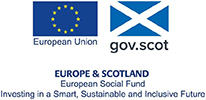Tourism MSc
Course code N831
What is special about this course?
Recent worldwide developments have impacted our lives in every way. The tourism industry has never faced a greater global challenge or been in more need of skilled, focused expertise to guide it through these unprecedented times.
Developing the skills and resilience needed in such an environment as we find ourselves today is central to the MSc Tourism programme. You will concentrate on adapting to changing contexts, as framed by the UN Sustainable Development Goals (SDGs) which are being mainstreamed and adopted as an ‘international currency’ by different countries and nations, including Scotland.
Another key programme focus will be in developing and utilising meta-skills such as complex problem solving, critical thinking, communication, creativity and leadership. You will gain the benefit of observing and experiencing incremental progress and engaging with new tools and methods.
This fully online programme offers two specialised exit awards; the pathway you choose will depend on your own specific background and interests:
MSc Tourism
Travelling with a purpose will be the new tourism mindset. This pathway is for the tourism professional wanting to support communities, destinations and businesses in tourism, as part of the solution rather than the problem, for a sustainable and successful future.
MSc Tourism (Enterprise)
Tourism is a major part of the experience economy. This pathway is for the tourism professional wanting to create meaningful connections between operators and visitors, and ensure expenditure is directed to positive outcomes where quality of life matters.
Both pathways will help you develop and build on your specific interests and expertise, and gain practical, analytical, and highly transferable skills sought after by employers.
Special features
- The programme offers two pathways:
- MSc Tourism
- MSc Tourism (Enterprise)
- You can study online from anywhere in the UK or the world, giving you the flexibility to work around your schedule and lifestyle
- You will develop a strong portfolio of ideas, techniques, skills and templates to use as launch pads for yourself and others, in your current and future workplace: get things done and make a difference
- You can choose to study towards the career-enhancing qualifications of PgCert, PgDip or the full MSc degree, or take individual modules for personal or professional development
- You wil be encouraged to select assessments, topics and project work linked to your employment or career choices. In the full Masters you can also undertake project work at an advanced level
Entry requirements
- 2:2 honours degree or above
- Applicants with other qualifications or experience will be considered on an individual basis
Access routes
Access routes include:
- BA (Hons) Adventure Tourism Management
- BA (Hons) Business and Management
- BSc (Hons) Environmental Science
- BA (Hons) Event Management
- BSc (Hons) Forest Management
- BSc (Hons) Geography
- BA (Hons) Marine and Coastal Tourism
- BA (Hons) Social Sciences
- BSc (Hons) Sustainable Development


PgCert
You will study the following three core modules (20 credits each):
- Winds of change - contemporary issues in tourism (S1)
- Out of decline - regenerative tourism (S1)
- Managing in the global network (S2)
PgDip
You will study three modules from the following (20 credits each):
- Local economic development (core for Enterprise pathway) (S2)
- Strategic marketing (core for Enterprise pathway) (S2)
- Sustainable tourism (S2)
- Nature worth seeing – natural assets and protected area tourism (S2)
- Selling cold islands (S2)
- Developing communities (S2)
- Research methods and techniques (core for dissertation) (S1)
- Research for business (S1)
MSc
To achieve the award of MSc Tourism you must complete a 60 credit professional business project or dissertation (S1 and S2).
How will I study my course?
- Full-time
- Part-time (structured)
- Part-time (unstructured)
- You will study through supported online learning using the university's virtual learning environment (VLE)
How long will my course last?
- Full-time: 18 months @ 36 hours per week
- Part-time (structured): 3 years @ 12-24 hours per week
- Part-time (unstructured): up to 6 years @ 9 hours per week
Number of hours per week indicates the total number of hours you should dedicate to the course, which includes time spent in online lectures and your own time spent on individual study and research.
You should allocate approximately 12 hours per week to each 20-credit module.
Where can I study my course?
- Perth
This course is fully online. You will be enrolled and receive support from tutors at UHI Perth.
Start date
- September
- January
Fees
For students normally domiciled in Scotland, with a term-time address in Scotland, the following fees apply:
This includes
- EU nationals with settled or pre-settled status in the UK,
- EEA/Swiss nationals with settled status in the UK
- EEA/Swiss nationals with pre-settled status who are self-employed or migrant workers in the UK.
| 2023-24 | 2024-25 | |
| Per module (20 credits) | £584 | £584 |
| Postgraduate certificate (3 modules, 60 credits) | £1,752 | £1,752 |
| Postgraduate diploma (6 modules, 120 credits) | £3,504 | £3,504 |
| Masters degree (6 modules + dissertation) | £5,256 | £5,256 |
Rest of UK students
For students normally domiciled in the rest of the UK (England, Wales and N. Ireland) or assessed as rest of the UK for fee status, the following fees apply:
| 2023-24 | 2024-25 | |
| Per module (20 credits) | £720 | £780 |
| Postgraduate certificate (3 modules, 60 credits) | £2,160 | £2,340 |
| Postgraduate diploma (6 modules, 120 credits) | £4,320 | £4,680 |
| Masters degree (6 modules + dissertation, 180 credits) | £6,480 | £7,020 |
EU/EEA and Swiss nationals without settled or pre-settled status in the UK
Following the UK’s departure from the European Union, the Scottish Government confirmed that EU/EEA and Swiss nationals, who do not have settled or pre-settled status, will be considered as international for fee purposes. These students will get an automatic fee scholarship.
This includes EEA/Swiss nationals with pre-settled status who are not self-employed or migrant workers in the UK.
| 2023-24 | With scholarship | 2024-25 | With scholarship | |
| Per module (20 credits) | £1,080 | £810 | £1,110 | £833 |
| Postgraduate certificate (3 modules, 60 credits) | £3,240 | £2,430 | £3,330 | £2,499 |
| Postgraduate diploma (6 modules, 120 credits, 180 credits) | £6,480 | £4,860 | £6,660 | £4,998 |
| Masters degree (6 modules + dissertation, 180 credits) | £9,720 | £7,290 | £9,990 | £7,497 |
International students
For students who do not normally reside in the UK or European Union, studying online from their home country, or assessed as international for fee status, the following fees apply:
| 2023-24 | 2024-25 | |
| Per module (20 credits) | £1,080 | £1,110 |
| Postgraduate certificate (3 modules, 60 credits) | £3,240 | £3,330 |
| Postgraduate diploma (6 modules, 120 credits, 180 credits) | £6,480 | £6,660 |
| Masters degree (6 modules + dissertation, 180 credits) | £9,720 | £9,990 |
This course is not available to international students requiring Student Route visa sponsorship to study in the UK.
A no fee increase guarantee is available for self-funding full-time and structured part-time rest of the UK, EU and international postgraduate students for continuous study for the same award, up to the permitted standard time limit for the relevant award.
Funding
Eligible Scotland-domiciled students studying full-time can access loans up to £11,500 from the Student Awards Agency for Scotland (SAAS). This comprises a tuition fee loan up to £7,000 and a non-income assessed living cost loan of £4,500.
Eligible Scotland-domiciled students studying part-time can apply for a tuition fee loan from SAAS. You must be intending to complete the course in no longer than twice the length of time it would take for a full-time student. For example, if your course is available to full-time students as a one-year programme, you will be funded for a maximum of two years' part-time study. If your course does not have a full-time option, you must complete within three years. You can apply for a tuition fee loan up to £7,000, which will be paid pro-rata for each academic year of study.
Full details can be found on the SAAS website. Applications for loans open in April.
Students from the rest of the UK who meet the eligibility requirements may be able to apply for a loan from the Student Loan Company.
What can I do on completion of my course?
On successful completion of the MSc Tourism, you will leave with the inspiration, understanding and confidence to define and respond to tourism’s pressing social, economic and environmental priorities.
You may pursue or further develop a career in several different tourism spheres, such as:
- Management positions in the public sector or non-governmental organisations
- Working in destination management in the UK, Europe or further afield
- Working in rural landscapes and protected areas that are engaged with the tourism economy
- Working with community tourism projects or helping private sector tourism businesses use the economy to deliver social and environmental good
Can I progress into further study?
The MSc Tourism provides excellent preparation and training for further advanced study (including PhD) in many areas of socio-economic, environmental and responsible tourism research.
Is there more information available online?
You can use the above QR code to connect directly to the course details.
I chose UHI for its flexibility and supported learning. The quality of education and emphasis on sustainability also made MSc Tourism the right course for me. I studied while living in Norway, and appreciated the high-quality online teaching. The teaching staff were available and very responsive to all my questions. My course leader was compassionate and reassuring in times of doubt. I really appreciated the exchanges with other students during online meetings as well as the autonomy I had to read through the materials and study with my own schedule.
When I think of UHI, one word comes to mind: community. Even though I was studying online, I felt included and proud to be part of such a diverse university. I received excellent support, it is one of the strong points of UHI, particularly for international students such as myself. I was very grateful for the small class sizes which allow the teachers to better support the students.
Justine studied MSc Tourism at UHI Perth.
Apply for Tourism MSc
We are delighted that you are thinking about studying at the University of the Highlands and Islands. We operate a fair and open admissions system committed to equality of opportunity and non-discrimination. We consider all applications on merit and on the basis of ability to achieve, without discrimination on grounds of gender, age, disability, ethnicity and socio-economic background. We welcome applications from all prospective students and aim to provide appropriate and efficient services to students with disabilities.
